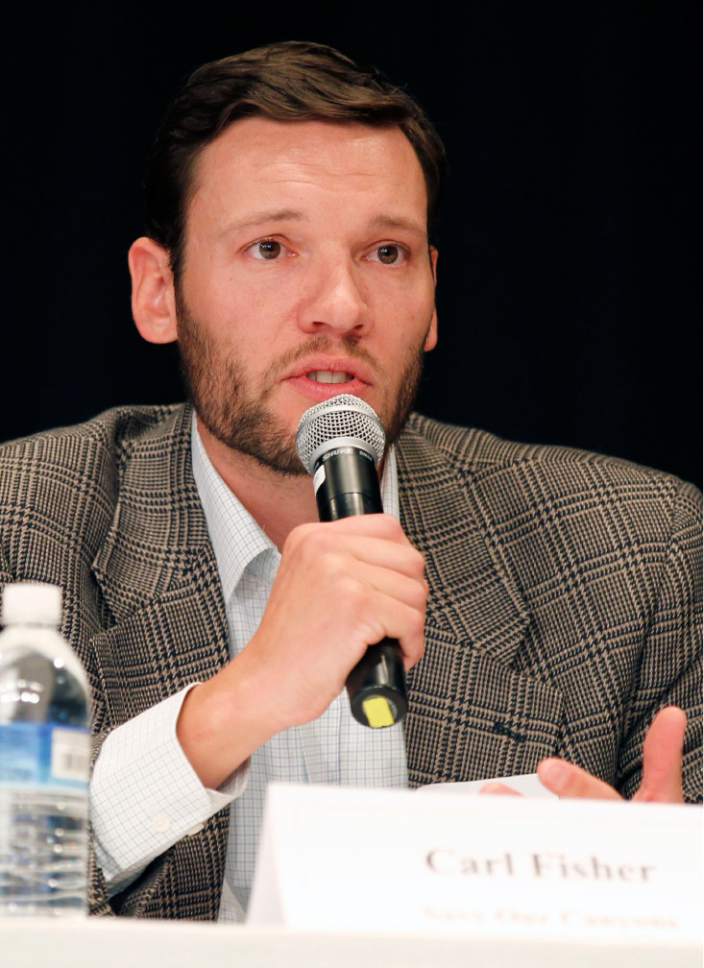This is an archived article that was published on sltrib.com in 2016, and information in the article may be outdated. It is provided only for personal research purposes and may not be reprinted.
A few short years ago, the long-simmering conflict over uses in the Wasatch Mountains flared up with two competing congressional bills offering dramatically different visions for the future of this mountain range. The first bill was a quiet public lands give-away, SkiLink, which was vociferously opposed by conservation and recreation groups. The other was a wilderness bill supported by local governments, conservation and recreation groups, but stridently opposed by a faction of ski resorts.
While neither was enacted by Congress, the two bills galvanized local communities and forced our state to realize the future of these mountains would be fraught with more conflict if something wasn't done to create a shared vision for the future of the Wasatch Mountains.
In 2012, cooler heads prevailed, much to the credit of our local elected officials, and the Mountain Accord was born. It convened diverse stakeholders working to identify shared values, such as conservation, recreation and watershed protection. The ensuing years witnessed hundreds of public meetings, visitor studies, engagement with hundreds of stakeholder organizations and thousands of public comments. In 2015, Mountain Accord stakeholders, many of whom had been on opposite sides of SkiLink and the wilderness bills, signed a consensus-based plan for the future of the Wasatch.
One important implementing piece of the Accord agreement has now been introduced into Congress, enjoying support of Utah's congressional delegation and will be heard before Rep. Rob Bishop's House Natural Resources Committee on Tuesday.
This legislation protects over 80,000 acres of public lands in the Wasatch and enables voluntary land exchanges transferring private properties, which include some of our highest peaks, into public hands thus ensuring that they'll never be developed. In return, ski resorts will receive limited public lands in already disturbed base areas. The result: clustered, rather than sprawling impacts to the wild watershed and high-quality recreation lands.
Throughout the Mountain Accord process, all agreed on the priority of increased protection of our watersheds. In the past year the Wasatch Mountains saw nearly 6 million user visits. That's roughly equivalent to the combined visitation numbers for all five of Utah's National Parks, but in an area one-fifth the size of those iconic parks.
Everything we do in these canyons impacts the quality of our water supply. This legislation also assists the protection of finite water resources through prevention of intensive development activities like road building and ski lifts. It also ensures that future transportation or development projects undergo rigorous public analysis to identify potential impacts to the watershed. Properly caring for our watershed not only results in clean culinary water, but it also means that other components of this fragile ecosystem such as wildlife habitat, are also protected.
While the beauty of the Wasatch motivates many of us to live here, it's the quality of recreation opportunities within the Wasatch that keeps us here and which keeps tourists coming back year after year. Mountain biking, hiking, climbing and skiing at resorts or in the backcountry, the Mountain Accord labored to protect these world-class opportunities.
To do this, the legislation makes minor adjustments to the boundaries of existing wilderness areas to facilitate development of the Bonneville Shoreline trail. Additionally, we paid special attention to make sure that changing wilderness boundaries would not close already popular mountain biking trails or impact trails in the process of being realized. We feel like a good balance has been achieved between accommodating recreation uses and preserving the natural landscape.
The goal of our respective organizations has always been to advocate for policies that protect the many public interests that make the Wasatch so important. We commend our elected leaders for hosting a respectful dialog and hope the community will rally behind this unprecedented collaboration in seemingly divisive times.
Carl Fisher is executive director of Save Our Canyons. Dave Livermore is Utah state director of The Nature Conservancy. Laura Briefer is director of Salt Lake City Department of Public Utilities.



